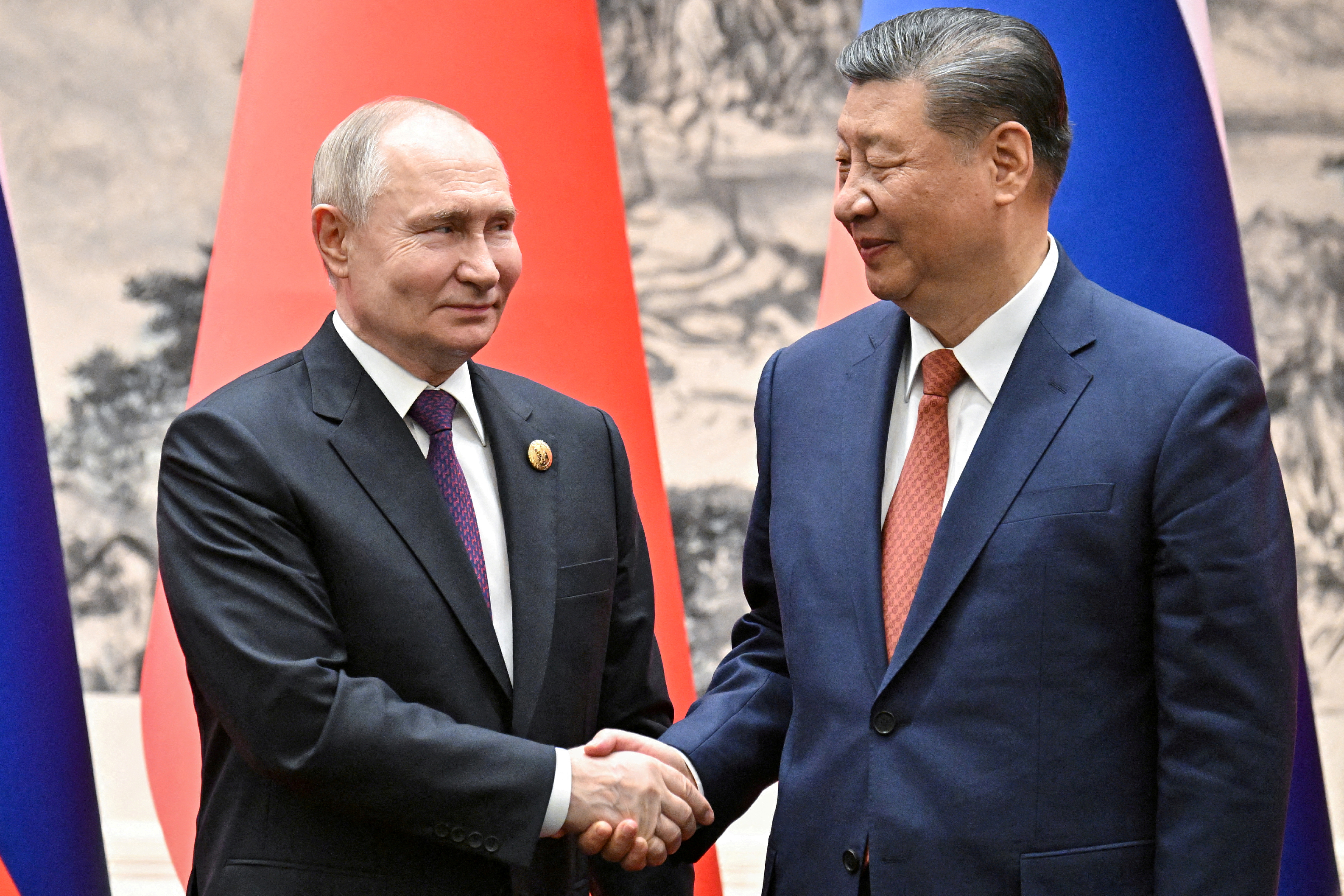The beginning of the end of Pax Americana
President Vladimir Putin of Russia on a state visit to China declared a new era in international relations. Well, he would say that would he not? And yet an era in which Russia and China are superpower friends and partners in world affairs to counter US world hegemony was inevitable after the US fell out with both.
So, a new world order is in the making and the rest of the world and Europe will need to adjust to the new challenge. The US is still the dominant superpower, as it has been since the collapse of the Soviet Union in 1991 and Europe is secure for the time being. But when the US Congress recently signalled it had other priorities in the time it took to provide military aid to Ukraine it is time to think the unthinkable – the beginning of the end of Pax Americana.
Also, the possible election of Donald Trump to the US presidency is giving European leaders pause for thought. Even if his pro-Putin stance on Ukraine does not materialise, a Trump presidency would be hugely problematic for European security as his style is transactional and inconsistent with the Pax Americana Europeans have been used to since the end of World War II in 1945.
China is neutral on Russia’s war in Ukraine although she accepts Putin’s narrative that Nato’s eastward expansion was the main cause of the war. She has issues with the US over Taiwan and over trade imbalances. But as the US agrees the one-China policy whereby Taiwan is legally part of the Peoples Republic of China but allowed to retain its identity as a liberal democracy, the problem of trade imbalances is manageable.
The new world order declared by Presidents Putin and Xi Jinping, however, has substance as a rival to the West’s so-called rules-based order in which the US has hitherto set the rules. Russia and China go back a long way when Russia was the principal communist state of the Soviet Union. They fell out over a border dispute in 1969 that enabled the US to step in as an interloper, but as Communist countries they shared an ideology and security for a time. They understand one another without being too judgemental about their systems of government which they do not pretend are liberal democratic but which they do claim suit their societies.
Two superpowers in partnership and the prospect of an unpredictable US president like Trump in charge of the US has sent shivers down the spine of European countries from the Baltic to the Balkans as they were all induced to join Nato in the expectation of US defence cover.
The EU could have been geared to provide defence cover if it were sufficiently united as a power rather than an economic and political union of sovereign states. At present it does not have a common defence policy comparable to that of a sovereign state. President Emmanuel Macron of France would like the EU to develop militarily but given Germany’s history many Europeans are careful about what they wish for in that regard.
Britain and France are the only two nuclear powers in Western Europe, but it would be impossible for them to provide the kind of defence cover the US provides at present. Recreating the German war machine of old with a nuclear capability is not an option as Britain would veto any such proposal.
UK prime minister Margaret Thatcher famously held a hig-level meeting of historians as she wanted to oppose the reunification of Germany back in 1989 for much the same reason Britain would not back a German finger on the nuclear trigger.
So what is to be done about Europe’s security? Russia may be seen as a threat to Europe but perhaps she may just have an alternative view of the world against the excesses of liberal democracy, rather than because she poses an aggressive military threat. The invasion of Ukraine horrified most of Europe but with US security cover in doubt the calculus is different now.
Besides Russia’s alternative view of the world is more widespread than most progressive people think. It is a reaction against liberal democracy worldwide as well as in Europe and America. As a political trend it could even be seen as a normal corrective swing to the right to counter excessive political correctness and is only dangerous if taken to extremes.
Today there are right-wing reactionary governments in Hungary and Slovakia that are apparently pro-Russian, as is the opposition National Rally party of Marine Le Pen in France. These governments are unpleasant, but they are democratically elected, and it is what people prefer at present. Italy, Sweden, Austria and even the Netherlands have moved to the right mainly on account of anti-immigrant populism, but also as a reaction against excessive liberalism – what the British and American extreme right call anti-woke.
Extreme right-wing parties are likely to do well in the forthcoming elections for the EU parliament next month right across Europe. A balance between liberal democracy and right-wing populism is difficult to imagine, but it could be made to work in the EU which prides itself on consensus and compromise.
Russia is not going to be easily forgiven in Brussels so the best hope is that she can be persuaded to end the war in Ukraine and gradually re-engage with Europe of which she is after all a part.
Alper Ali Riza is a king’s counsel in the UK and a retired part-time judge






Click here to change your cookie preferences